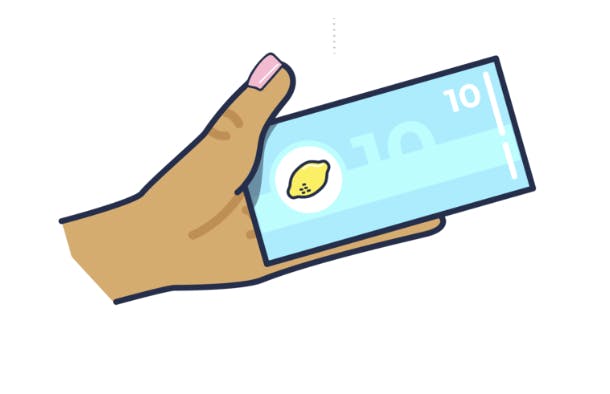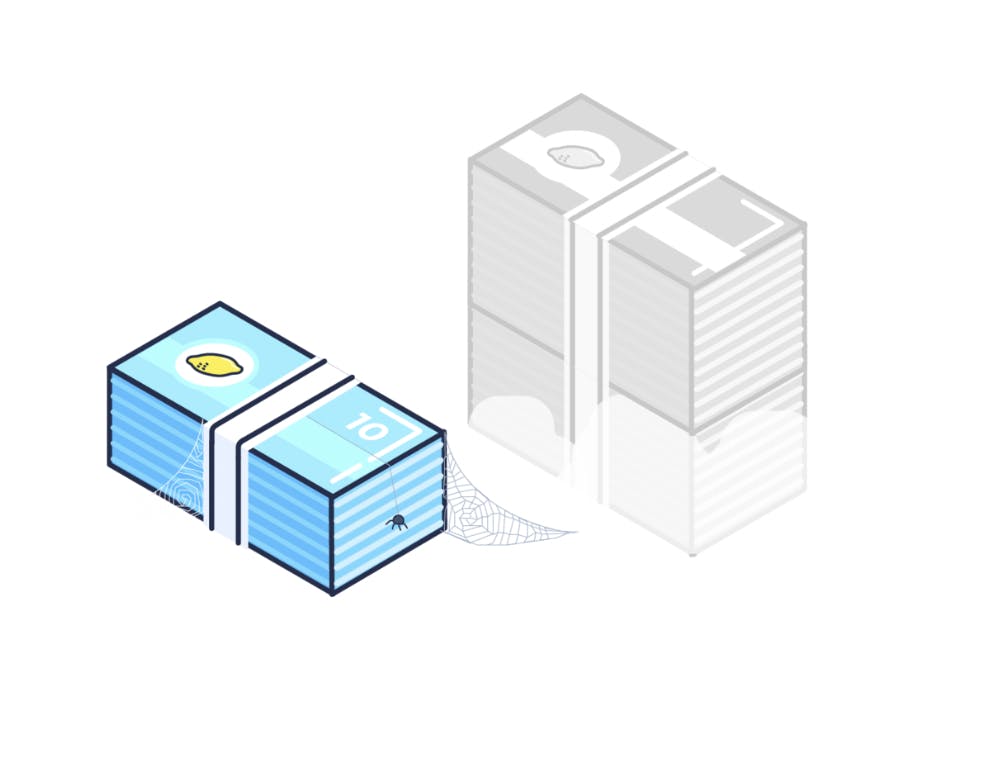What are the costs of keeping money in a bank account?
It's easy to say that keeping cash in a Swiss bank account is safe, but at what cost? The interest rates are almost non-existing, but at least you are left with what you had. Right?
In reality, you will have less over time. Here are the three main costs that everyone faces by "docking" cash in a bank account. ⚓️
- Bank fees. Bank charges you various direct fees to keep your account up and running. With a few bucks a month that’s often around 60–120 CHF in fees per year.
- Inflation. Inflation worsens your buying power over time. This means that each year you can buy a bit less with the same amount of money.
- Missed opportunities. Opportunity costs refer to all the things you might miss because your savings are parked in a bank account.
Let’s have a closer look at how inflation and missed opportunities impact your savings.
How does inflation affect my money?
Inflation affects money in all forms – regardless if you have it on your account, in cash or invested in something amazing. The current inflation rate in Switzerland is 0.8 %. Roughly speaking, this means that each year you can buy 0.8% less stuff with the same amount of money.
At the first glance, this might seem insignificant. The impact of inflation becomes visible as the years roll by. The rate might also fluctuate: 0.8% are relatively low, but it can easily go up to 2-3 % or even more.
Here is an example
- Now
Inflation rate 0.8 %
Cash in a bank account 25'000 CHF
- After 10 years
Buying power 23’070 CHF
Lost buying power 1930 CHF
How much does a missed opportunity cost?
Short answer: it depends. A missed opportunity is the most subjective and abstract cost effect of the three. It's an umbrella term for all kinds of unrealized positive consequences.
Missed joy
Missed joy refers to the "ifs" and "buts" of passing on things like travelling to Bali or buying a new laptop instead of letting the cash rest untouched.
This lost opportunity cost isn't the most important; you might be intentionally postponing a bigger purchase for later. The rule of thumb still applies – the longer you wait, the less buying power you have over time.
Missed returns
Missed returns are the benefits of investing that you might have experienced, had you "put your money to work".
What it means in practice depends on how much risk you can and should take.
The options are, for example, long-term passive investing in "a bit of everything" (that's what Selma can help you with), starting or funding a business, buying specific company shares, giving out a loan, investing in a property or experimenting with trends like cryptocurrency.
How much can I lose by not investing?
Depending on what you invest in and for how long, the answer varies a lot, but let's make a simple example. The Swiss stock market SMI made 6.16% on average over the last 25 years.
For the sake of simplicity, and to be a bit pessimistic, here's an example with a 5% yearly return.
- Now
Inflation rate 0.8 %
Cash on a bank account 25'000 CHF
Imagined inflation adjusted return
(with the inflation effect deducted)
+5% / year
- After 10 years
You would have in total 40,722 CHF
Your missed return cost 15’722 CHF
TL;DR
Bank fees, inflation and missed opportunities cost money. You can reduce those costs (and earn more) with investing.
Carina Wetzlhütter
Carina makes technology understandable. As the former marketing lead of a complex software product, she joined Selma to help explain finance in a more human way. Winter being her favorite season, she loves ❄️ and 🎿
LinkedIn

